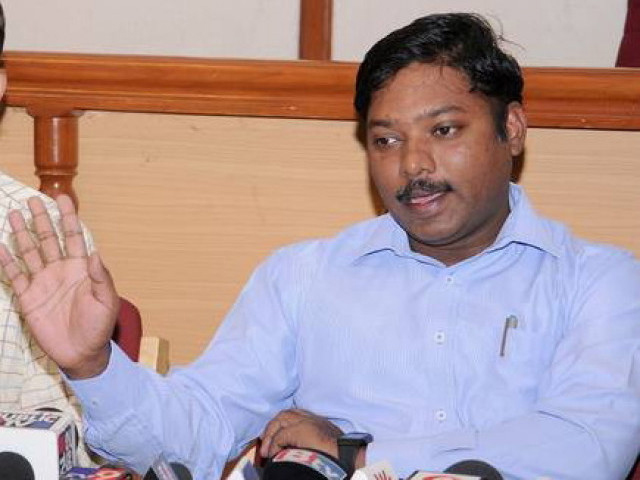Mangaluru: Karnataka IAS officer S Sasikanth Senthil submitted his resignation from the service Friday, telling ‘friends’ in a letter that the ‘fundamental building blocks of democracy are being compromised in an unprecedented manner’. S Sasikanth Senthil is the Dakshina Kannada district Deputy Commissioner.
Senthil officially stated it was his personal decision to resign. However, he said that it is unethical for him to continue as a civil servant in the government when the ‘fundamental building blocks of democracy are being compromised in an unprecedented manner’. He however, asserted his resignation was not in any way connected to any event or a particular person.
“The people and the public representatives of DK (Dakshina Kannada) have been extremely kind to me and I owe an apology to them for discontinuing the job vested on me midway,” S Sasikanth Senthil said in the letter.
Senthil also said he felt the coming days will present extremely difficult challenges to the basic fabric of the nation and that he will be better off outside the IAS to continue work at making life better for all. “It simply cannot be business as usual anymore,” asserted S Sasikanth Senthil.
Senthil, who belongs to Tamil Nadu, is a 2009 batch Indian Administrative Service (IAS) officer. He was made Deputy Commissioner of Dakshina Kannada in 2017. He previously served as deputy commissioner in other parts of the state, including Raichur. The post of Deputy Commissioner is known as district collector in some other parts of the country.
Last month, another IAS officer, Kannan Gopinathan, resigned from service because of restrictions imposed in Jammu and Kashmir. Gopinathan held the post of Secretary of Power, Urban Development and Agriculture departments in the Dadra and Nagar Haveli administration.
In January, IAS officer Shah Faesal, who had been in the limelight since becoming the first Kashmiri to top the exam in 2009, resigned to protest the ‘unabated’ killings in Kashmir and the marginalisation of Indian Muslims. He subsequently formed a political party, the J&K Peoples Movement.
PTI

